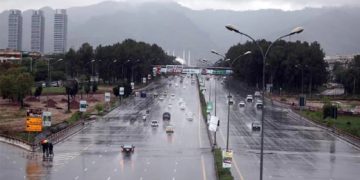It is a sobering reality that Pakistan, with a population exceeding 240 million, ranks a dismal 130th out of 140 countries in the World Justice Project’s Rule of Law Index. This poor ranking reflects the deep-seated issues within its judicial system.
One of the gravest concerns is the overwhelming backlog of cases. The Supreme Court, in particular, is burdened with over 60,000 cases, many of which are constitutional. This overwhelming caseload leaves little room for the court to effectively address individual rights and grievances, resulting in growing public frustration and declining trust in the judicial system.
To tackle this crisis, the establishment of a Constitutional Court is both logical and necessary. Such a court would provide a specialized platform for constitutional interpretations, intergovernmental disputes, and the safeguarding of constitutional integrity.
This would significantly ease the load on the Supreme Court, allowing it to focus on broader judicial responsibilities. The benefits of a Constitutional Court are numerous. Not only would it alleviate the Supreme Court’s caseload, but it would also ensure that constitutional matters are handled by judges with specific expertise. The result would be more informed, consistent rulings. Furthermore, by efficiently addressing individual rights and grievances, a Constitutional Court could help restore public confidence in the judicial system.
Can Pakistan’s Judiciary Overcome its Crisis?
The judicial system in Pakistan is plagued by a long-standing issue: an overwhelming backlog of cases. This has resulted in delayed justice, further eroding public confidence in the judiciary. The 26th Constitutional Amendment proposes the creation of a Constitutional Court to address this issue.
This specialized court would handle constitutional law matters, reducing the burden on the Supreme Court. Constitutional Courts are a common feature in many democratic countries, and the idea has been supported by various political figures and organizations in Pakistan.
The Charter of Democracy, signed in 2006 between the Pakistan People’s Party (PPP) and Pakistan Muslim League-Nawaz (PML-N), also called for the creation of such a court. A Constitutional Court would not only reduce the Supreme Court’s caseload but also ensure that constitutional matters are adjudicated by judges with specialized expertise, resulting in more consistent decisions.
One concern about establishing a Constitutional Court is its potential impact on judicial independence. However, it is important to note that this court’s jurisdiction would be limited to constitutional matters, thereby preserving judicial independence. Moreover, the appointment of judges could be conducted through a transparent, merit-based process, further safeguarding judicial autonomy.
Another contentious issue in Pakistan’s judicial system is the use of military courts. While these courts have been criticized for violating Article 8 of the Constitution, their creation has been necessitated by the civilian courts’ failure to handle terrorism cases effectively.
The assassination of former Prime Minister Benazir Bhutto underscored the need for an efficient system to address such crimes. Military courts are known for delivering swift justice, making them a powerful deterrent against terrorists and their networks.
Other nations, too, have resorted to military courts during times of crisis, proving they can temporarily address a broken judicial system. However, military courts should only be a short-term measure, and efforts should be made to strengthen civilian courts so they can effectively handle terrorism cases. Lastly, Article 63-A of the Constitution, which disqualifies members of the Assembly who vote against their party’s decisions, has been the subject of much debate.
This provision imposes a degree of authoritarian control within a democratic system, undermining individual freedom and the principles of democratic governance. Repealing this article would be a crucial step toward bringing Pakistan’s democracy closer to its true ideals.
Last but not least, the establishment of a Constitutional Court, the limited use of military courts, and the repeal of Article 63-A are essential steps toward reforming Pakistan’s judicial system.
These reforms would help reduce the backlog of cases, improve the judiciary’s efficiency, and strengthen the country’s democratic institutions. However, these reforms must be implemented in line with the principles of justice, equality, and human rights.
The time for action is now. Pakistan’s Parliament must take decisive steps to establish a Constitutional Court, which would enhance the country’s standing in the Rule of Law Index and provide its citizens with a judicial system that is efficient, trustworthy, and worthy of their confidence.














![Crown Prince of Iran, Reza Pahlavi visit Western Wall (Wailing Wall) in east Jerusalem on April 18, 2023 [Ariel Zandberg (GPO) / Anadolu Agency]](https://mmnews.tv/wp-content/uploads/2025/06/Reza-Pahlavi-visits-Israel-and-prays-at-the-Western-Wall-350x250.jpg)














